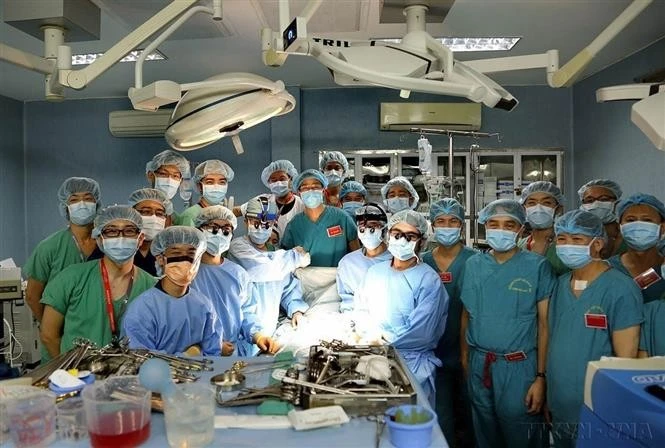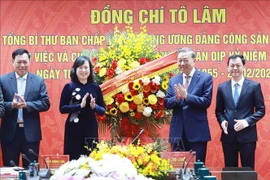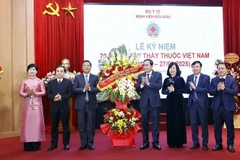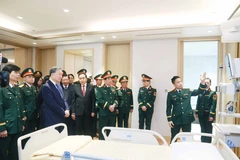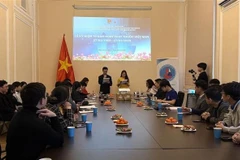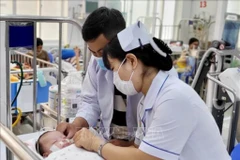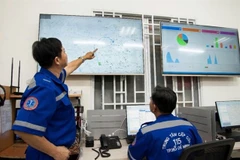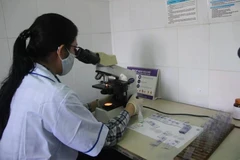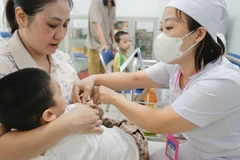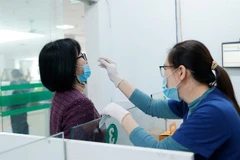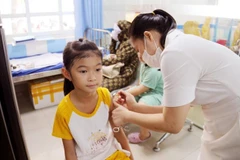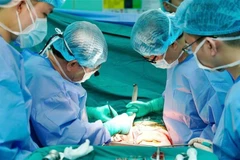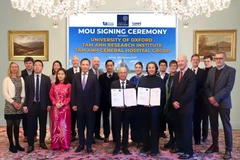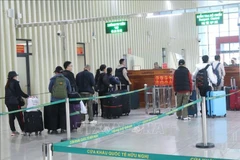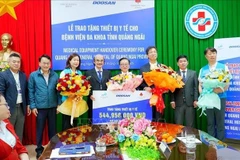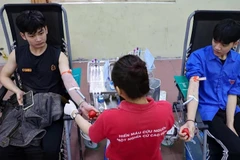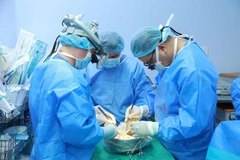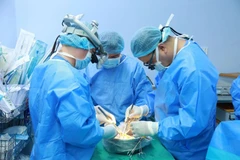Hanoi (VNA) – The health sector has achieved remarkable milestones in providing medical services in 2024 - the first year the amended Law on Medical Examination and Treatment takes effect, according to Health Minister Dao Hong Lan.
In addition to efforts to improve the quality of routine medical services, the year also marked significant milestones with the successful implementation of numerous advanced medical techniques across various specialties, contributing to increasing patient satisfaction, the minister said.
In October last year, doctors at Viet Duc Friendship Hospital brought pride to Vietnam’s healthcare sector, particularly in organ transplantation, by successfully performing the country’s first-ever simultaneous heart-liver transplant on a patient in critical condition.
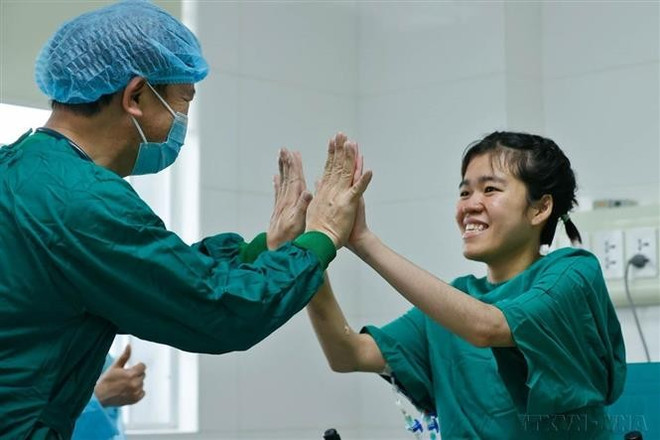
The National Lung Hospital also successfully performed lung transplant surgeries, including a case where two lungs were transplanted for a 56-year-old man in the central province of Thanh Hoa. This case was deemed the most comprehensive success in Vietnam, achieving the longest survival time.
These miracles demonstrate that Vietnamese doctors have fully mastered organ transplantation techniques, including complex multi-organ transplants. This marks a breakthrough in advanced medical technology, showcasing the expertise and capabilities of healthcare professionals on the global medical map, she stressed.
In 2024, the healthcare sector also contributed to supporting flood-affected communities, actively providing medical care to victims of the historic super Typhoon Yagi.
Lan highlighted the case of the "50 miraculous days of revival" of a baby from Nu village, a victim of flash floods after Typhoon Yagi. This case exemplified the dedication and determination of medical professionals in saving critically ill patients when survival seemed almost impossible.
With support from leading domestic and foreign experts, doctors at Bach Mai Hospital saved a pediatric patient who suffered from septic shock, multiple organ failure, severe respiratory distress, severe pneumonia from drowning and mud inhalation, grade 3 liver trauma, fractured right clavicle, subdural hematoma on the left hemisphere, and multiple organ failure infection.
Besides the achievements, she pointed out existing challenges facing the healthcare sector, including shifts in disease patterns, rapid population aging, climate change, quality management of medical personnel, and localised shortages of medicines, medical supplies, and equipment.
In 2025, the sector will accelerate policy development, refine the legal framework, and continue restructuring and streamlining the ministry's organisational structure, its affiliated units, and regional agencies.
It will continue to develop policies for grassroots and preventive healthcare, enhancing its capacity for disease forecasting, surveillance, and early detection, towards timely and effectively controlling epidemics and public health emergencies, the minister said.
Additionally, a roadmap to expand the number of vaccines and effectively carry out the Expanded Programme on Immunisation (EPI) will be performed, while population management in the new context will be enhanced, she added.
According to Lan, attention will be also paid to improving the quality of medical services, maternal and child healthcare, developing advanced medical techniques; expanding telemedicine services; enhancing hospital management and quality control; effectively integrating traditional medicine with modern medical practices; managing and licensing pharmaceuticals and medical equipment; accelerating application of advanced technologies and innovation, and digital transformation; promoting pharmaceutical industry and medicinal materials; and speeding up administrative procedure reforms and the progress of key projects./.
